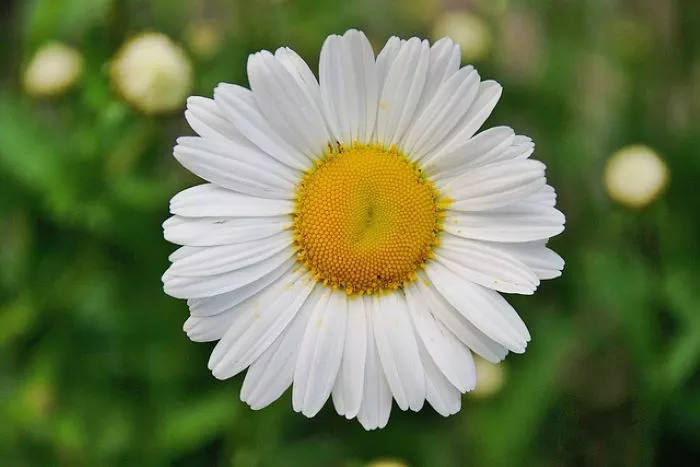Calcium is an essential nutrient for plants, playing a crucial role in their growth and development. It is a secondary macronutrient, which means that while plants require it in smaller quantities compared to primary macronutrients like nitrogen, phosphorus, and potassium, its importance cannot be overstated. This article will explore which flowers need calcium, the role of calcium in plant health, and how to ensure that your flowering plants receive adequate calcium.
The Role of Calcium in Plants
Calcium serves several vital functions in plants. It is a key component of cell walls, providing structural support and stability. Calcium helps maintain cell integrity and regulates the movement of other nutrients across cell membranes. It also plays a role in enzyme activity, signaling processes, and the overall metabolism of plants.
Calcium deficiency can lead to various problems in flowering plants. Symptoms may include blossom end rot in fruits, tip burn in lettuce, and poor root development. In flowering plants, calcium deficiency can result in weak stems, reduced flowering, and increased susceptibility to diseases.
Flowers That Need Calcium
Several flowering plants require adequate calcium for optimal growth and blooming. Here are some notable examples:
Roses
Roses are popular garden flowers known for their beauty and fragrance. They require calcium for strong cell walls and healthy growth. Calcium helps prevent common issues such as blossom drop and poor root development. Ensuring that roses receive sufficient calcium can enhance their overall vigor and flowering potential.
Lilies
Lilies are elegant flowers that thrive in well-drained soil rich in nutrients. Calcium is essential for lily bulbs, as it supports healthy growth and flowering. A deficiency in calcium can lead to stunted growth and reduced flowering. Ensuring adequate calcium levels in the soil can improve the quality and longevity of lily blooms.
Geraniums
Geraniums are popular annuals and perennials that are often grown for their vibrant flowers. These plants benefit from calcium as it helps strengthen their stems and improve overall health. Calcium deficiency in geraniums can lead to wilting and poor flowering. Regularly checking soil calcium levels can help maintain healthy geranium plants.
Petunias
Petunias are beloved for their colorful blooms and versatility in gardens. They require calcium for strong growth and to prevent issues such as blossom drop. Calcium helps petunias develop sturdy stems and vibrant flowers. Ensuring proper calcium levels can enhance the beauty of petunias in any garden setting.
Snapdragons
Snapdragons are unique flowers known for their distinctive shape and vibrant colors. These plants require calcium for strong cell walls and overall health. A calcium deficiency can lead to weak stems and reduced flowering. Providing snapdragons with adequate calcium can improve their resilience and flowering performance.
Sources of Calcium for Flowering Plants
To ensure that flowering plants receive sufficient calcium, gardeners can utilize various sources. Here are some effective options:
Lime
Lime is a common soil amendment that provides calcium and raises soil pH. It is particularly beneficial for acidic soils. When applying lime, it is essential to conduct a soil test to determine the appropriate amount needed. Over-application can lead to overly alkaline conditions, which can negatively affect plant growth.
Gypsum
Gypsum is another excellent source of calcium that does not alter soil pH. It improves soil structure and drainage while providing calcium to plants. Gypsum is especially useful in clay soils, where it can help alleviate compaction and improve root growth.
Bone Meal
Bone meal is an organic fertilizer rich in phosphorus and calcium. It is made from ground animal bones and can be added to the soil during planting. Bone meal releases nutrients slowly, providing a steady supply of calcium to flowering plants over time.
Calcium Nitrate
Calcium nitrate is a soluble fertilizer that supplies both calcium and nitrogen. It is particularly useful for container gardens and hydroponic systems. Calcium nitrate can be applied as a foliar spray or mixed into the soil to ensure that plants receive adequate calcium.
Eggshells
Crushed eggshells are a natural source of calcium and can be added to the garden. They decompose slowly, releasing calcium into the soil over time. This method is particularly beneficial for organic gardeners looking for sustainable options.
Ensuring Adequate Calcium Levels
To maintain healthy calcium levels in the soil, gardeners should consider the following practices:
Soil Testing
Conducting a soil test is the first step in determining calcium levels. Soil tests provide valuable information about nutrient availability and pH levels. Based on the results, gardeners can make informed decisions about soil amendments.
Regular Fertilization
Regularly applying fertilizers that contain calcium can help maintain adequate levels in the soil. Choose fertilizers that are appropriate for the specific flowering plants being grown. Follow the manufacturer’s instructions for application rates and timing.
Monitoring Plant Health
Observing plants for signs of calcium deficiency is essential. Symptoms may include wilting, poor growth, and reduced flowering. If these symptoms are noticed, consider testing the soil and adjusting calcium levels accordingly.
Conclusion
Calcium is a vital nutrient for many flowering plants, playing a crucial role in their growth and health. Flowers such as roses, lilies, geraniums, petunias, and snapdragons benefit significantly from adequate calcium levels. By understanding the importance of calcium and ensuring that flowering plants receive sufficient amounts, gardeners can promote vibrant blooms and overall plant resilience. Utilizing various sources of calcium and implementing good gardening practices will help create a thriving garden filled with beautiful flowers.


